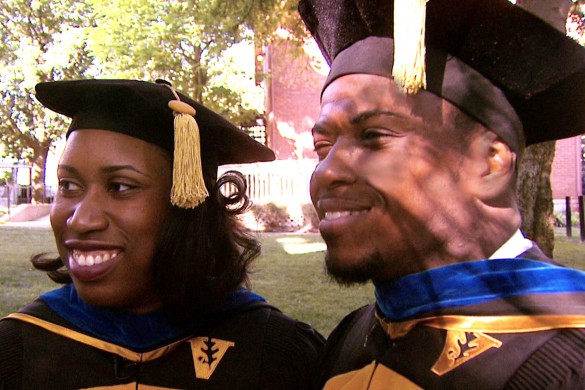
Increasing the number of minority students who earn a Ph.D. in science, technology, engineering and math is the aim of a new “bridge to doctorate” program being launched by a coalition of Tennessee universities and led by Tennessee State University and Vanderbilt University.
“We are thrilled to be working with TSU and our other Tennessee partners on this project. We all benefit by increasing the number of underrepresented minority students earning their Ph.D.s in these fields,”Art Overholser, senior associate dean of the Vanderbilt School of Engineering and co-director of the new program, said. “The perspectives and talents of the students we hope to attract will not only enrich our research and teaching of STEM disciplines, but will serve as an example and inspiration for students to come.”
The National Science Foundation recently awarded $987,000 to TSU to launch the new program as an expansion of the Tennessee Louis Stokes Alliance for Minority Participation, or TLSAMP. TLSAMP is a NSF-funded collaborative effort by 10 Tennessee colleges and universities to significantly increase and improve the retention of underrepresented minority students in STEM fields statewide. TLSAMP is led by TSU and includes Fisk University, LeMoyne-Owen College, Middle Tennessee State University, Nashville State Community College, Southwest Tennessee Community College, Tennessee Technological University, University of Memphis, University of Tennessee – Knoxville and Vanderbilt.
“We are delighted that Vanderbilt University is the inaugural host for the Tennessee Bridge-to-the–Doctorate program. One of our goals is to increase the number of students attending graduate school. This award allows more of our students to transition into such programs,” Lonnie Sharpe, Massie Chair of Excellence at Tennessee State University and TLSAMP executive director, said. “I am excited about this great opportunity for our students to continue their quest for doctoral degrees in science, technology, engineering and mathematics.”
The new program, tagged TLSAMP BD @ VU, will fund 12 students and will recruit students both nationally and within TLSAMP institutions. Students must complete undergraduate degrees in science, technology, engineering and mathematics fields to qualify for the program.
TLSAMP BD @ VU will build upon the success and lessons learned from the Fisk-Vanderbilt Masters-to-Ph.D. Program. Launched in 2004, the two-year program has built a detailed, research-based toolkit to support underrepresented minority students’ on their path to earning a Ph.D.
Rather than selecting students based on the usual metrics of test scores or grade point averages alone, the bridge program looks at how the students display “grit” and how they tackle academic challenges. Students are given a clear road map of what they will need to do to apply to and be admitted to a Ph.D. program, and work closely every step of the way with a mentor on their studies and collaborative research projects. Mentors are trained to identify possible trouble points and to step in quickly to help students stay on track, and also connect the students to the broader scientific community.
As a result of that program, Vanderbilt has become the leading producer of underrepresented minority Ph.D.s in astronomy, materials science and physics. Since its launch in 2004, the program has graduated 16 Ph.D.’s, all of whom have gone on to careers in academia, industry and national laboratories. The new funding will allow this model to be expanded across all STEM disciplines and will involve every STEM Ph.D. program at Vanderbilt.
“We have built a robust and nationally visible platform through the Fisk-Vanderbilt Bridge Program for underrepresented minority Ph.D.s in the sciences. Now with this NSF Bridge to the Doctorate grant, we have the opportunity to scale up and make an impact in engineering also,” Keivan Stassun, professor of physics and astronomy at Vanderbilt and co-director of TLSAMP BD @ VU, said. “Importantly, this also represents an experiment to reform STEM graduate education that will further position TLSAMP partner institutions as leaders in at last solving the so-called ‘diversity pipeline problem’ in STEM.”
Mark Hardy, vice president for academic affairs at TSU, is the principal investigator on the TLSAMP BD @ VU grant and will be assisted on the project by Sharpe. Dina Stroud, research assistant professor in clinical pharmacology, is the executive director of TLSAMP BD @ Vanderbilt.